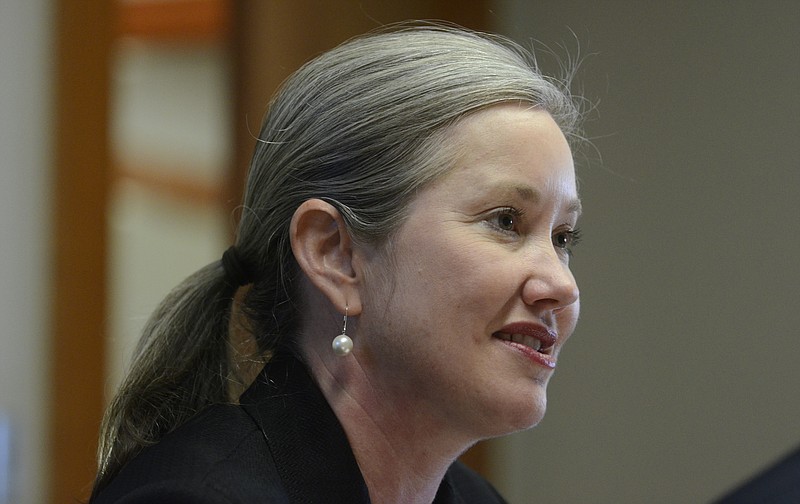Online
To read SCORE’s full report, visit bit.ly/TNedu2017.
NASHVILLE - In an effort to maintain Tennessee's reputation for improving education, the State Collaborative on Reforming Education on Tuesday released its annual report outlining the nonprofit organization's strategies to bolster continued success.
The report, SCORE's yearly check-up on the state of education, details student successes and the challenges that remain. Tennessee students have made large gains on the National Assessment of Educational Progress, known as the nation's report card, but the state's achievement gaps between groups of students have remained static or widened since 2007.
"The report identifies our state's opportunity to tackle challenges that are holding our students back from achieving their full potential," Tosha Downey, director of advocacy at the Memphis Education Fund, told lawmakers, educators and public school advocates gathered in Nashville for the report's release.
It lists several main priorities: accelerating support for educators, increasing excellence and equity for all students, and standing firm on the policies that have led to success and seizing opportunities for innovation.
Lindsey Hagan, assistant principal at Wallace A. Smith Elementary in Hamilton County and a member of the SCORE Steering Committee, talked about ways the state can better empower educators.
Hagan outlined the report's call to improve teacher compensation, strengthen teacher preparation, expand leadership pipelines for teachers and emphasize the benefits of teachers being evaluated by multiple measures.
"Ultimately these strategies are for student success," she said.
Tennessee should become the state where top teachers want to work, Hagan continued, and lead the way in recruiting and retaining a diverse workforce.
"We know that teachers often learn best when they learn from each other," Hagan said, emphasizing the importance of districts strengthening teacher leadership and professional development opportunities.
Downey talked about the need to provide all students with opportunity, especially the state's poor and minority students.
"All means all, y'all," she said.
The state historically has failed to provide all students with an excellent and equitable education, she said.
"Historically underserved students have the highest need for strong instruction, yet are most likely to receive less than effective teaching," she said.
In Hamilton County, poor and minority students are much more likely to learn from teachers deemed least effective, according to state and local data.
SCORE's report lists ways districts can work to better recruit top teachers to the schools where they are needed most, and it calls for an equitable accountability system that tracks the state's success in closing achievement gaps.
"The ultimate, ultimate measure of equity is whether all students will graduate prepared to be successful adults," Downey said. "That is why the report urges giving all students access to rigorous early post-secondary and career opportunities."
Hamilton County Schools is expanding its partnerships with businesses and education stakeholders to increase career and technical opportunities for students. Fewer than 40 percent of the county's high school graduates have continued to earn any post-secondary education, and education stakeholders including the Chattanooga 2.0 effort are working with the district to better prepare students for success after graduation.
Joelle Philips, president of AT&T Tennessee and a member of the SCORE board of directors, urged the state and lawmakers to provide stability on assessments, accountability and academic standards. She said the report also emphasizes the need for high expectations for students and high standards.
The state also must seize opportunities to be innovative in the ways it works to prepare students to be problem solvers and lifelong learners prepared to compete in the evolving workforce, she said.
Jamie Woodson, SCORE's executive chairman and CEO, said the report is a reflection of different constituencies across the state, and a variety of groups should be involved in implementing the strategies moving forward.
"The list of priorities reflects an agenda not just for SCORE, but for the entire state of Tennessee," Woodson said. "Inside [the report] are specific, detailed calls to action - and every education partner in the state can find at least one to work on this year."
Contact staff writer Kendi A. Rainwater at krainwater@timesfreepress.com or 423-757-6592. Follow her on Twitter @kendi_and.
